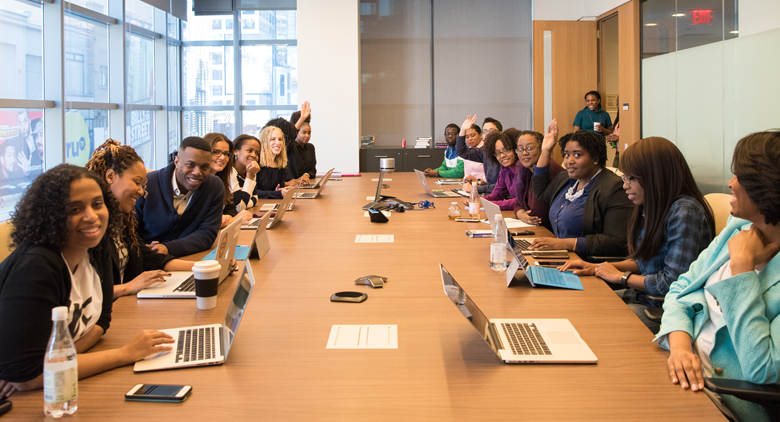
How to Craft a Company Alcohol Policy

Implementing Ethical HR Practices in Alcohol Management
Call it whiskey business—for most HR professionals, serving and drinking alcohol in the office or at company events is a touchy subject. Navigating the complexities of workplace alcohol policies can be a delicate task for business owners. As the lines between work and social activities blur, especially with the rise of office perks like draught beer and wine Wednesdays, understanding how to develop a responsible and legally compliant alcohol policy becomes essential for HR professionals and business leaders alike.
HR departments might be forgiven for feeling a little shaken, if not stirred. When work and alcohol mix, there are serious practical and compliance risks to consider. That said, it’s possible to draft a work alcohol policy that encourages both frivolity and responsibility.
For business owners and HR professionals, developing a Workplace Alcohol Policy Guide is not only about compliance but also about fostering a safe and inclusive environment. Here’s how to create and implement a set of rules designed just for your company.
Tailoring an Alcohol Policy to Your Company
If you’re feeling some trepidation about drafting an alcohol policy, know you’re in good company. According to the National Survey on Drug Use and Health, 81 percent of U.S. companies have a written drug and alcohol policy. While these policies are clearly commonplace, there is no “one-size-fits-all” approach to drafting one.
For some employers, implementing a simple rule permitting responsible drinking only after 5:00 PM might suffice. In other cases, a more robust drug and alcohol policy is appropriate. Whatever your formal policy ends up being, it must address three things: whether/when alcohol use is permitted, the importance of being “fit for work,” and a disclaimer that protects the use of legally prescribed medication.
Your approach should be appropriate to your company’s industry and workforce. For example, while it may be fair to allow office workers to drink within certain hours, it’s impractical—and even illegal, in many cases—to extend those same privileges to individuals who drive or operate heavy machinery on the job. If you’re a federal contractor, note that the Drug-Free Workplace Act of 1988 may bar you from having any alcohol in the office at all.
That seems intuitive enough, but there are more nuanced considerations to make. How do your employees commute to work? For urban offices largely dependent on public transportation, offering access to alcohol on-premises poses less risk than doing so for an automobile-bound workforce. If an intoxicated employee causes an accident after leaving a company happy hour, it may be the employer who is liable, as was found in a prominent court case in 2009.
If you’re worried about your workforce’s potential to over-indulge, a 2014 study on workplace drinking identified a number of predictors HR can turn to. Consider tempering your offerings if the nature of employees’ work includes these characteristics:
-
Long hours
-
High physical demands or risk of injury
-
Monotonous tasks
-
Tight deadlines
-
Job insecurity
-
Inexperienced managers
For companies with both urban and suburban offices, or where the nature of work performed is diverse, enforcing disparate policies isn’t advisable. Instead of creating a culture of perceived “haves and have nots,” adopt a policy that either limits drinking to special company events (like a holiday party) or within narrow windows of the week. If you worry that not offering alcohol makes you a less competitive recruiter, don’t—a 2017 Namely survey found that U.S. workers valued benefits, time off, and other perks well ahead of company happy hours. You’ll find there are other generous, more creative perks that incur less liability but still boost employee engagement and employee experience.
Serving Alcohol at Office Holiday Parties and Happy Hours
According to a Society for Human Resources (SHRM) survey, nearly 60 percent of businesses serve alcohol at their year-end or holiday parties. And when it comes to these high-risk events, there’s one near-certainty: the day after is bound to be interesting for HR.
Thankfully, company parties don’t have to lead to serious HR headaches. There are a number of tried-and-true strategies that planners can leverage to lessen the risks. Budget permitting, the most effective tactic might be to allow employees to invite a significant other or spouse. Doing so has the potential to curb overindulgence and dissuade participants engaging in unfortunate (or embarrassing) behavior. It might also discourage attendees from extending the night by attending an after-party—the type of event which should almost certainly not be company-sponsored.
If you’re still worried about excessive drinking, consider opting for a cash bar or “token” system, where employees can redeem tickets for drinks. According to SHRM, 71 percent of employers use the latter method to regulate drinking at parties.
Last but not least, make sure alcohol isn’t at the center of everything your company celebrates. In lieu of defaulting to a happy hour whenever it comes time to plan an event, opt for off-site activities like laser-tag, karaoke, or even a corporate field day. Even opting for dinner at a restaurant is more inclusive, giving those who choose not to imbibe in alcohol something else to enjoy.
Investigation and Enforcement
If you suspect an employee is violating your company’s alcohol policy, your disciplinary options are more limited than you think. This is especially true if it’s unclear whether alcohol is truly to blame for an employee’s behavior, or in cases where addiction may be involved.
When it comes to any disciplinary action related to suspected alcohol use, err on the side of caution and consult with legal counsel. Why? If the individual takes legally-prescribed drugs or suffers from alcoholism, disciplining or firing employees can subject your company to a discrimination claim under the Americans with Disabilities Act (ADA). Though the law makes no specific reference to alcoholism, courts have ruled that it qualifies as a protected disability.
You can avoid these risks by doing your due diligence beforehand. Never act on an alcohol-related incident without investigating the matter further. Interview the individual’s manager or any other involved parties. If the issue isn’t tied to a specific incident but an ongoing trend, ask a manager to jot down their observations over the next few weeks. Consider looping in another manager or member of leadership for a second opinion. SHRM provides a useful note-taking template you can provide for situations just like these. If the notes lead you to reasonably suspect that an employee is violating your alcohol policy, only then should you turn to drug testing and disciplinary action.
Note that alcohol-related incidents often involve other parts of HR policy. If you don’t already, be sure to have a written sexual harassment policy in place. In some state, like California, it’s a legal requirement. If you don’t have one, it may be worth working with outside counsel to create a policy.
As a business owner, ensuring the well-being of your employees while navigating the legal landscape of alcohol in the workplace is paramount. Consider consulting with HR experts to develop a policy that aligns with your company’s culture, values, and legal obligations.Drafting and enforcing a corporate alcohol policy doesn’t have to be a sobering proposition. Use these simple tips to implement a set of rules that works for your organization. For more on workplace policy and employee handbooks, read our Guide to Company Policies.

See how Namely's flexible solution will help you streamline your HR processes by having your people, payroll, and benefits info all in on place.
Get a demoYou May Also Like
Get the latest news from Namely about HR, Payroll, and Benefits.
Thanks for subscribing!


Get the latest news from Namely about HR, Payroll, and Benefits.
Thanks for subscribing!



